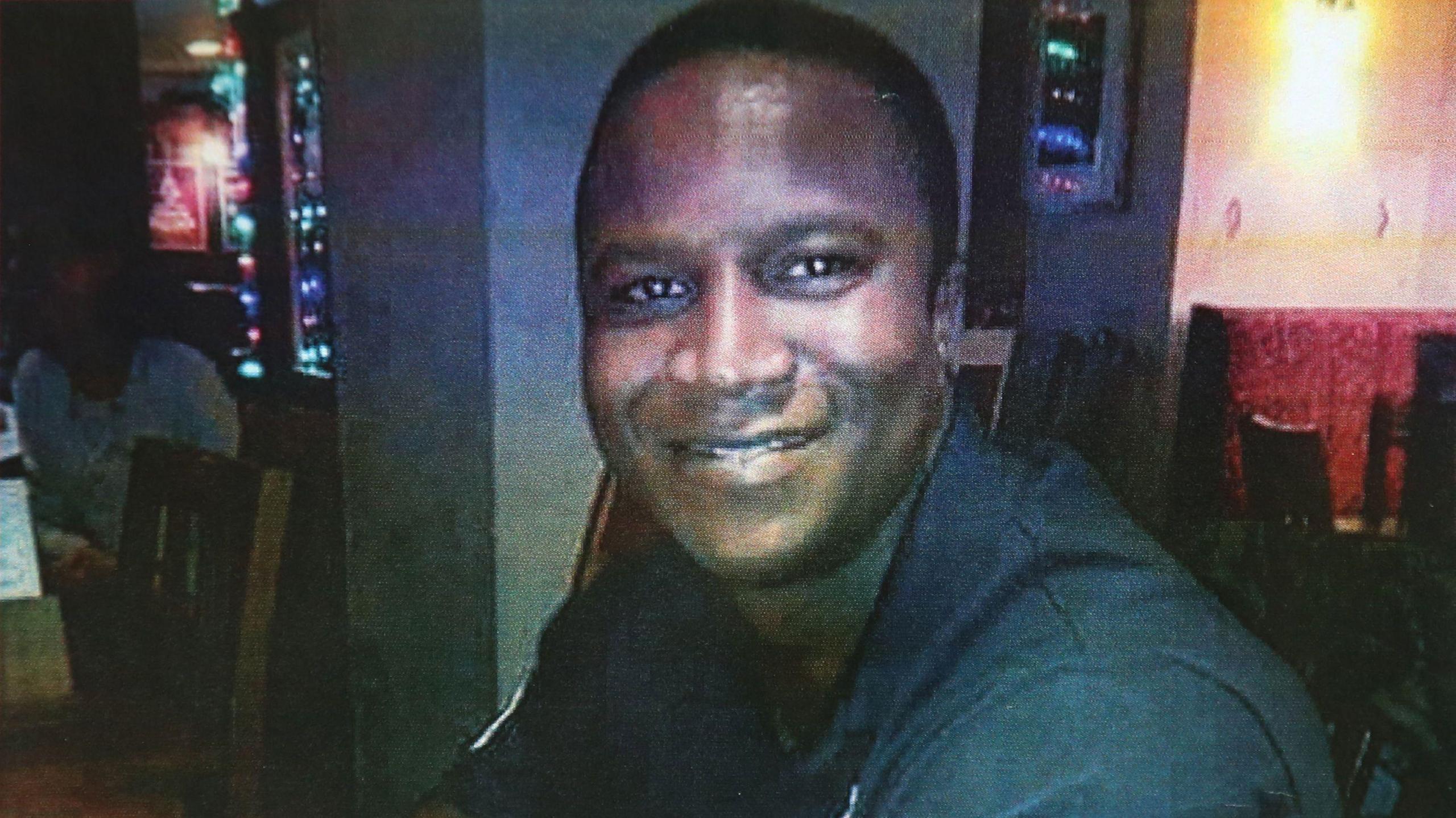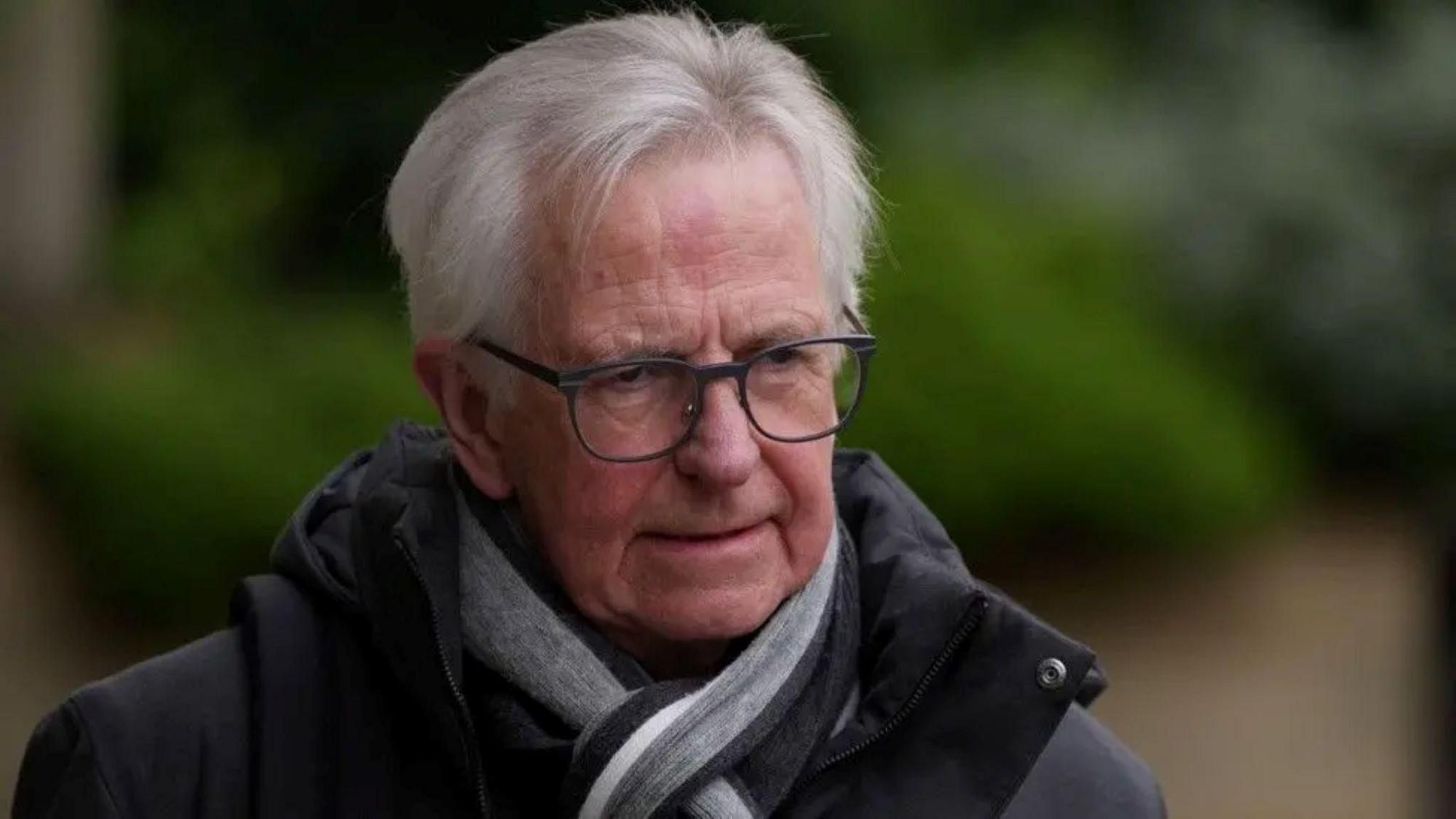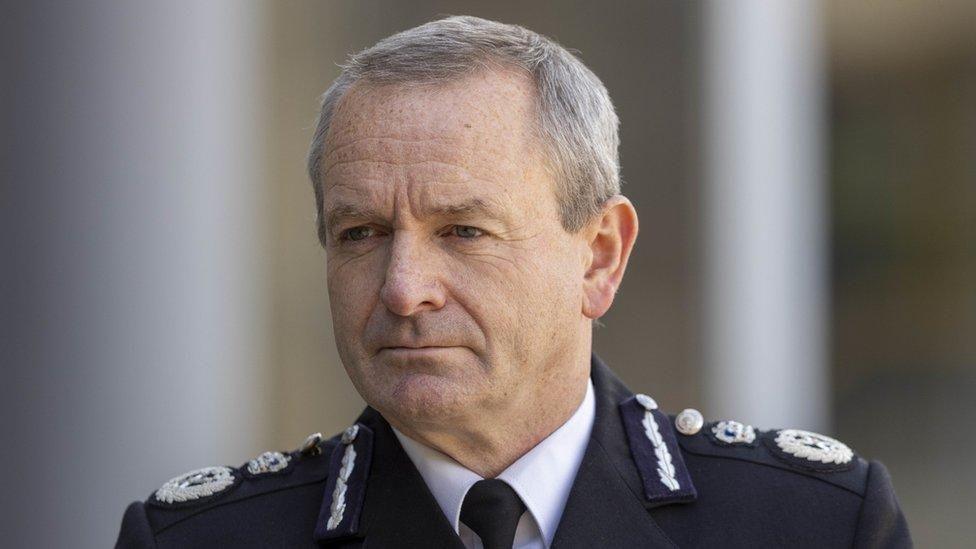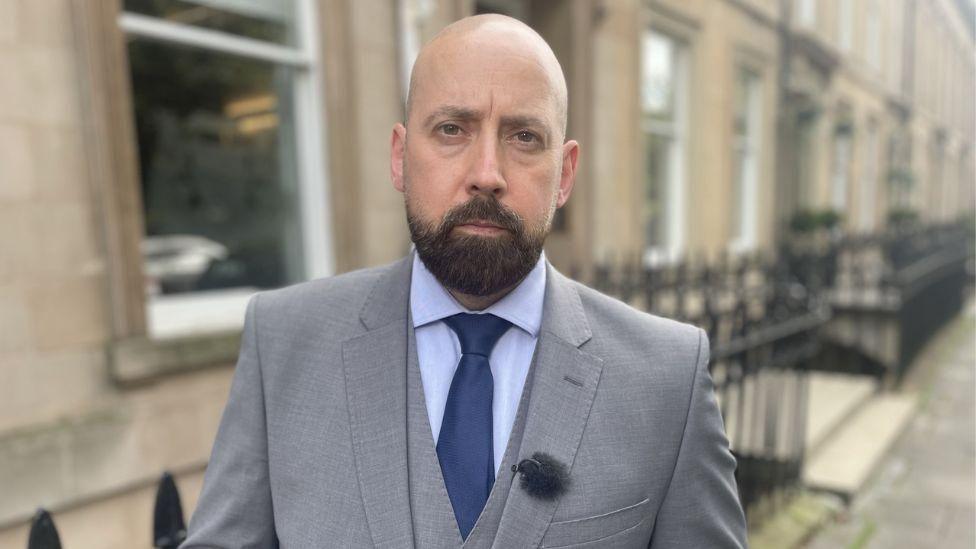Former judge resigns as chair of Sheku Bayoh death inquiry

Sheku Bayoh died after being restrained by six police officers in Fife
- Published
Lord Bracadale has resigned as chairperson of the Sheku Bayoh inquiry, more than two months after he refused to quit the post.
The Scottish Police Federation (SPF), which represents rank and file officers, had previously questioned the former judge's impartiality.
The SPF raised concerns about Lord Bracadale's private meetings with the family of Mr Bayoh.
The father-of-two was 31 when he died in May 2015 after being restrained by six police officers on a street in the Fife town of Kirkcaldy.
The inquiry has been examining what happened before and during the death of Mr Bayou in police custody.
It has been looking at how the police dealt with the aftermath, the investigation into Mr Bayoh's death and whether race was a factor.
Lord Bracadale confirmed his resignation in a letter to Deputy First Minister Kate Forbes.
He said it followed a move by the SPF to raise a judicial review of his decision - which had been due to be heard next month - to continue in his role.

Lord Bracadale had led the inquiry into Mr Bayoh's death since 2020
The row dates back to April when the SPF first raised concerns about Lord Bracadale's meetings with the family of Mr Bayoh.
In June submissions were heard following a formal application by the federation for the former judge to recuse himself from further involvement in the inquiry.
But on 13 August Lord Bracadale announced he would not step down.
Following his resignation, the federation said the former judge's position had become "untenable" but added the situation was "unfortunate for all those involved in the inquiry".
The Scottish government thanked Lord Bracadale for his work and said it was "committed to establishing the facts surrounding the circumstances leading to Mr Bayoh's death".
A spokesperson added: "We will now urgently consider the best way forward."
Meanwhile, Mr Bayoh's family said they were "devastated" by Lord Bracadale's decision.
Chair of Sheku Bayoh inquiry refuses to step down
- Published13 August
Bayoh family settle damages claim against police
- Published24 March
No change to Bayoh death inquiry remit - Forbes
- Published25 February
In his resignation letter, Lord Bracadale wrote: "As the judicial review process developed it became clear that the concerns about my conduct had not been allayed by my decision and that the criticisms have persisted.
"As a result, it is now clear to me that many of the core participants have lost confidence in my conduct of the Inquiry to such an extent that it cannot be retrieved."
The former judge said all the evidence had now been led and the next stage in the inquiry would be the hearing of closing submissions.
This will then be followed by a preparation of the report by the chair.
Lord Bracadale added: "I am concerned that the majority of core participants would have no confidence in the findings of any report prepared by me.
"I consider that that, in turn, would be likely to have a damaging effect on public confidence in the findings of a report prepared by me and recommendations flowing from it.
"In my view the best interests of the inquiry would be served by the appointment of a new chair to whom the existing evidence, all of which is available on tape and transcript, would be available."

Former Police Scotland chief constable Sir Iain Livingstone, who retired in 2023, told the inquiry that the force was institutionally racist
Lord Bracadale said the purpose of his meetings with the families was to "obtain and retain their confidence in the Inquiry and their engagement with it".
He added its terms of reference included issues directly related to them, including their experience of the subsequent investigations; and "the overarching issue of the race of Sheku Bayoh".
Lord Bracadale said the families had "lost confidence" in Police Scotland, the Police Investigations and Review Commissioner and the Crown Office and Procurator Fiscal Service.
He added: "As the Inquiry progressed it became apparent at various points that they were losing confidence in the Inquiry and were likely to cease engaging with it.
"I consider that if I had not had meetings with members of the Families, it is likely that they would have walked out of the Inquiry."
"I very much regret that my conduct in relation to meeting the families for what I considered to be a reasonable purpose of maintaining their engagement with the Inquiry has led to a loss of confidence by other core participants in my position as Chair."
The former judge also noted that during the course of the inquiry, former Police Scotland chief constable Sir Iain Livingstone said that the force was institutionally racist.
Lord Bracadale's letter concluded: "I very much hope that the Scottish ministers will be able to appoint a new chair in early course in order to restore the confidence of all the core participants in the inquiry and that the families of Sheku Bayoh will continue to engage with and participate in the Inquiry under a new chair."

Police federation chief David Kennedy described the situation as "unfortunate"
The SPF said Lord Bracadale's position had become "untenable" after it emerged he met privately with the family of Mr Bayoh on at least five occasions since the start of the inquiry and "discussed evidence with them".
General secretary David Kennedy said: "It is unfortunate for all those involved in the inquiry that this situation has occurred.
"The meetings between Lord Bracadale and the family of Sheku Bayoh had created an appearance of bias.
"We look forward to the final stages of the inquiry and bringing this matter to a conclusion."
The Bayoh family's lawyer Aamer Anwar said the inquiry - which started in November 2020 - had highlighted the "devastating and deadly force used on an unarmed black man".
Mr Anwar added: "For the Bayoh family, an unholy trinity of the Police, SPF and Crown Office have tried their very best to shut down this inquiry, but they cannot hide from the truth."
The Glasgow-based solicitor described the situation as "unprecedented".
He told BBC Scotland News: "It has never, ever happened in any public inquiry in the United Kingdom."
Members of the public called the police after Mr Bayoh was spotted carrying a knife and behaving erratically in the streets of Kirkcaldy on 3 May 2015.
He was not carrying the knife when officers arrived at the scene but a violent confrontation followed, with up to six officers restraining the 31-year-old on the ground.
Mr Bayoh lost consciousness and later died in hospital.